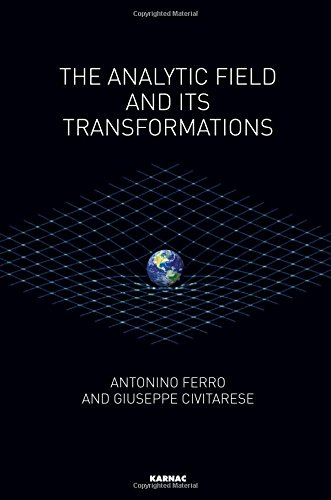The Analytic Field and its Transformations

Book Details
- Publisher : Routledge
- Published : 2015
- Cover : Paperback
- Pages : 224
- Category :
Psychoanalysis - Catalogue No : 35863
- ISBN 13 : 9781782201823
- ISBN 10 : 1782201823
Reviews and Endorsements
‘In this compelling new volume, Antonino Ferro and Giuseppe Civitarese present the cutting edge of contemporary psychoanalytic field theory. In so doing, they do an extraordinary job of integrating the ideas of many thinkers from diverse corners of the intellectual universe into a radically new, but clinically useful way of thinking about the patient–analyst discourse. It is one of the most impressive psychoanalytic contributions I have read in the last two decades and has the potential to transform the day-in, day-out work of the analyst into new depths of understanding. The journey into the unconscious will never be the same. I highly recommend it to all analysts and psychoanalytic therapists.’
— Glen O. Gabbard, MD, author of Love and Hate in the Analytic Setting
‘Psychoanalysis has currently become enriched by renewed conceptions of long-developing models, such as drive, part object, ego psychology, social psychology, relationism, and intersubjectivity, to name just a few, but now comes along yet another new and exciting joining together of many of these models with one borrowed from the field of grammatology, specifically metaphor – and field theory, a distillation of Kleinian and relation-intersubjectivity, and other earlier works by Bion, especially his contributions on groups and container/contained. The authors epigrammatise this new trend as “BFT”, (“post-Bion Field Theory”). There are many noteworthy features in this work. It presents itself as a compendium and resource book that spells out the fundamental structure of this new analytic super-model by an extensive deconstruction of other psychoanalytic models, followed by thoughtful integrations of them with the field theory model. I found the painstaking distinctions the authors make between “interpersonal”, “intersubjective”, “group”, and “field” to be valuable. I was also happy to see how they spelled out the mystery of “field operations” – as the anonymous voice of the group totally as well as individually, the collective will (author) being the product of the subgroups and their members. The analyst now has a voice with which he can be effectively spoken as well as speak. This work promises to become a standard.'
— James S. Grotstein, MD, Professor of Psychiatry, UCLA School of Medicine, and author of A Beam of Intense Darkness: Wilfred Bion's Legacy to Psychoanalysis

